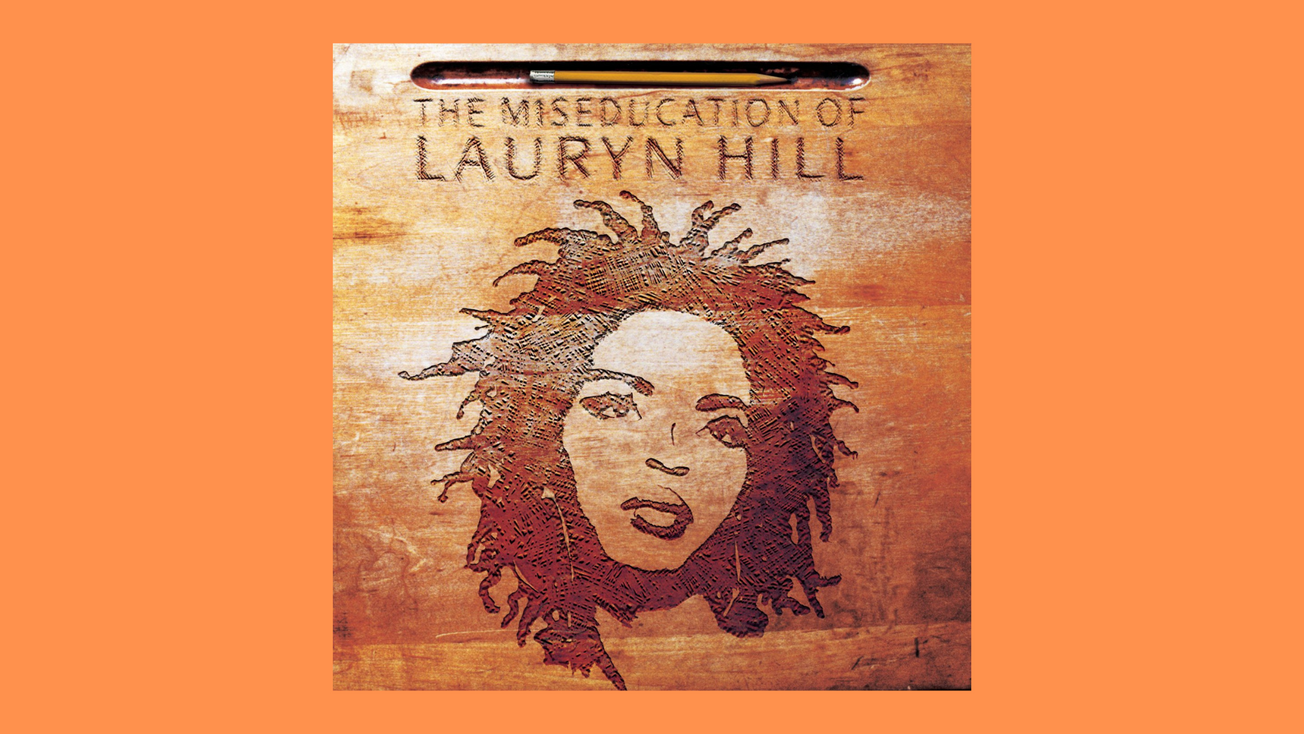Today marks 20 years since the release of The Miseducation of Lauryn Hill. Online Music Editor Bethany Marris looks back on the seminal debut album.
In recent years, Lauryn Hill has conjured a reputation for abiding only by her own watch. Turning up to countless shows several hours late and showing little regard towards her loyal fan-base, with such a feeling having emerged that only the punter is to blame when let down by the artist. Whilst enduring backlash through a plethora of enraged tweets and journalistic condemnation, Hill’s worldwide tour dates quickly reached a 95% sell out back in spring this year.
Unfortunately for thousands, however, history appears to have repeated itself, and on July 25th the artist either cancelled or re-scheduled all shows until October 13th, supposedly due to ‘production issues’. Disappointed? Yes. Dispirited? Not quite. The tour marks the twentieth anniversary of the Ex-Fugees star’s unfading debut solo release, The Miseducation of Lauryn Hill, and perhaps this alone is an adequate explanation as to why her followers maintain optimism in the face of uncertainty.
Succeeding the messy dissolution of The Fugees, and following the birth of her first child, The Miseducation was conceived between the autumn of 1997, and the summer of 1998. In its initial weeks, the album topped the Billboard 200 for two consecutive weeks, only to be rivalled by the ‘hard-knock’ drop of Jay Z’s third studio album.
During this time, the record sold 687,000 copies, hitting one million sales in the United States alone in the first month. In December 2001, The Miseducation was certified 8x platinum by the RIAA, and by the following spring had been consumed by over 12 million listeners. Whilst we cannot use statistics to determine how ‘good’ a body of work really is, it quickly became clear that for one reason or another, Hill’s debut record was objectively special.
The Fugees’ sophomore album exposed Lauryn’s raspy, angelic vocal capacity to be on par with her fierce witty raps. The trio were inherently hip-hop, yet their success may be attributed to lyrical wizardry and innovative sample-grabbing; infusing boom-bap beats with the funk of Cymande and the warmth of Roberta Flack. Working alongside Wyclef Jean and Pras instilled within Hill the ability to draw upon Jazz, Motown and Reggae, also heavily tapping into trendy 90s Neo-Soul. With such an array of sounds, The Miseducation risked seeming messy and disjointed, yet ultimately Hill has weaved a beautifully cohesive, genre-transcending, sonic experience.
In a cosy 2001 MTV session, Hill expressed that 'Fantasy is what people want, but reality is what they need’. It takes little analysis to realise that such sentiment is deeply ingrained in The Miseducation’s thematic DNA. The heavy, dizzying beat of ex factor conveys an almost tangible exhaustion. The hopeless refrain, "You said you'd die for me … why won't you live for me?", serves to amplify this, as Hill subsumes the listener into her heartbreak. The song concludes with the confused cry, "Where were you, when I needed you?". 'Ex-factor' is a blisteringly personal insight into the psyche of the artist in the midst of a failing, turbulent relationship.
Following this, ‘To Zion’ guides the listener upon Hill’s spiritual journey in the face of the "crazy circumstance" that is young, unplanned pregnancy. Switching between smoky vocals and raspy spoken word, Lauryn, with overwhelming maturity, defies those who encouraged her to "use her head" against motherhood, proclaiming "instead I chose to use my heart". Other tracks on the record carrying such sentimental fervour include, ‘When it Hurts So Bad’, ‘Tell Him’ and ‘Nothing Even Matters’, featuring neo-soul royalty D’Angelo. Through these seamlessly integrated ballads, Hill paints notions of vulnerability and hopelessness as intrinsically human; a lionhearted move in an overwhelmingly emasculated and misogynistic rap game.
Simultaneously, Hill uses the record’s classically hip-hop tracks to elevate the tempo throughout. While we are presented with moments of Lauryn laying emotionally bare, her prowess as an MC contradicts even the slightest indications of weakness. Opening the album with crisp enunciation, ‘Lost Ones’ uses hindsight to conclude that "Wisdom is better than silver and gold", firing the unequivocal hook - "you might win some, but you just lost one", in the direction of ex-flame Wyclef. Hill’s upbeat breakout track ‘Doo-Wop (That Thing)’ strikes as light-hearted, yet deals with deeper questions of integrity, self- respect and loyalty, humbling her audience through the line "don’t be a hard rock when you really are a gem".
Lauryn contextualised the album’s title during an interview in 2000, stating that her ‘miseducation’ stands "contrary to what the world says", as it is "the education that comes from life experience, not academia". For someone barely in her ‘adulting’ years, Hill had experienced profound life changes.
Through narratives of hardship, overcoming and empowerment, we understand how these changes catalysed the artist’s transition from girl to woman, as she chronicles her coming of age in a way we may all find space to resonate with. Inevitably and evidently, following the success of her debut, Hill was still left with a great deal to learn, yet we cannot let her shortfalls dampen the youthful wisdom that the album exuberates. The Miseducation is timeless, and as Hill herself articulated, it holds a unique capacity to "mean something more" with every play.
Featured image: Ruffhouse / Lauryn Hill
**Never heard Lauryn Hill's debut album? Get educated here








